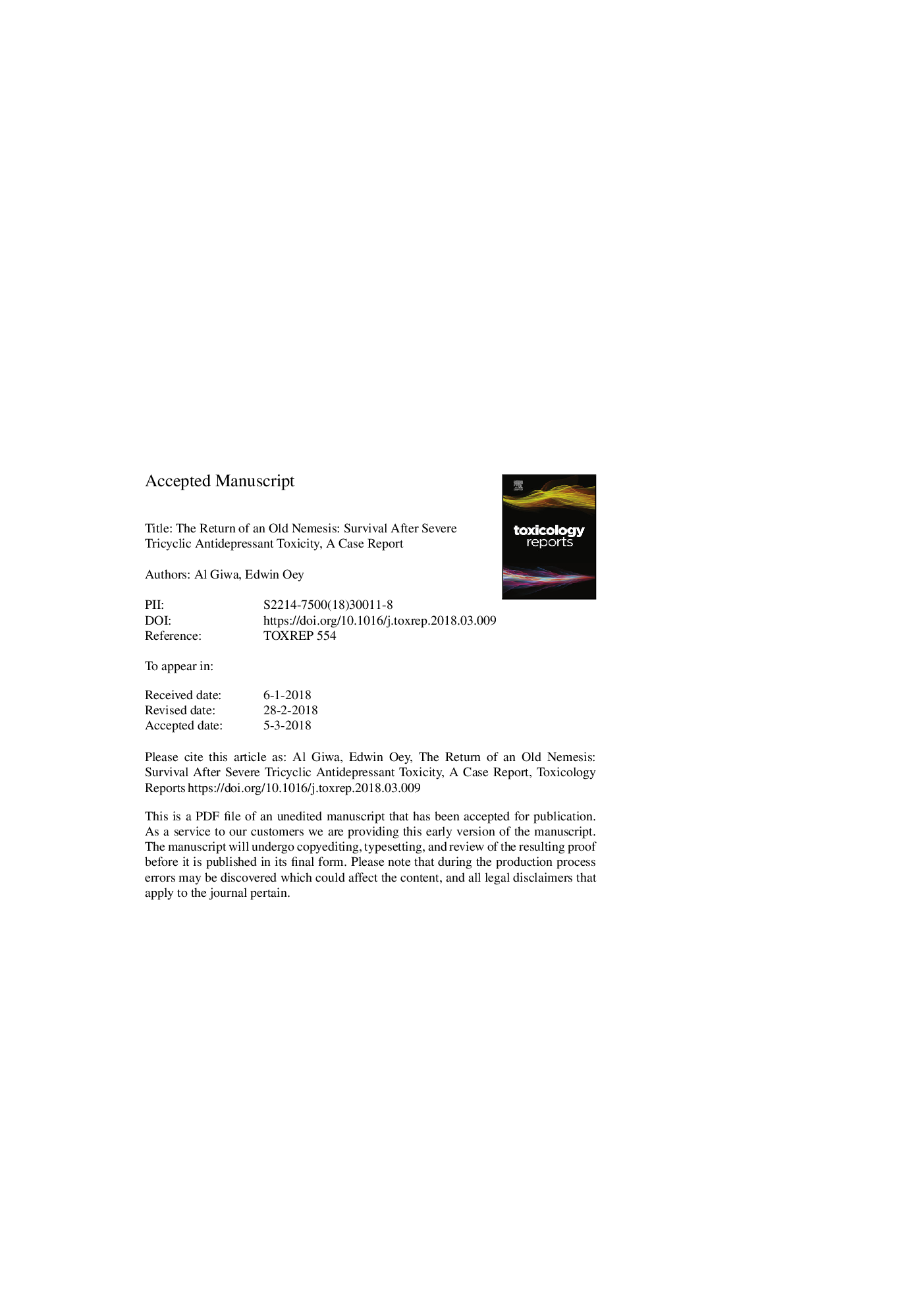| Article ID | Journal | Published Year | Pages | File Type |
|---|---|---|---|---|
| 8539492 | Toxicology Reports | 2018 | 13 Pages |
Abstract
Tricyclic antidepressants (TCAs) were first approved by the Food and Drug Administration (FDA) for use as antidepressants in the 1950s. Although their function as an antidepressant in the U.S. has largely been replaced by newer and safer alternatives, they are still prescribed for various conditions, including chronic pain and intractable depression. We will discuss a case of a TCA overdose presenting with generalized tonic-clonic seizures and multiple recurrent cardiac arrests. This is a case of a 34 year-old female who was brought in by Emergency Medical Services (EMS) with generalized tonic clonic seizure, status post intentional ingestion of multiple drugs. Her vital signs were: Temperature-38.8â¯Â°C, Heart Rate-140 beats per minute, Respiratory Rate (RR)-25 breaths per minute, Blood Pressure (BP)-139/77â¯mmHg, Oxygen Saturation (SaO2)-99% on 100% nonrebreather facemask (NRB). Her electrocardiogram (EKG) showed a widened ventricular tachyarrhythmia and she was immediately given an ampule of sodium bicarbonate. Over the span of the subsequent 2â¯h, she had recurrent pulseless ventricular tachycardic arrest 5 times in the emergency department (ED). After 5â¯days of further stabilization, the patient had a subsequent complete recovery with normal neurological function at discharge from the medical unit. In the ED it is imperative that we understand the now uncommon presentation of a TCA overdose in order to initiate immediate treatment. It is also important to understand the optimal treatment choices in patients that presents with TCA toxicity, especially arrhythmias that are refractory to initial treatment choices. Overall, severe TCA poisoning is often fatal; however, we demonstrated that with high quality resuscitative efforts, despite multiple arrests, survival to discharge with normal neurological outcome is possible.
Keywords
Related Topics
Life Sciences
Environmental Science
Health, Toxicology and Mutagenesis
Authors
Al Giwa, Edwin Oey,
